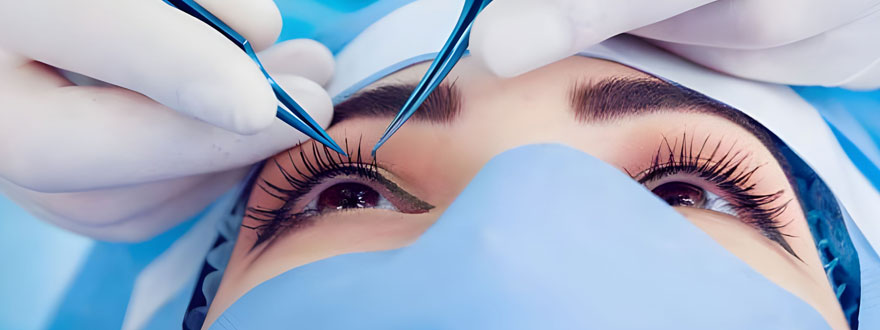Ocular Surface surgery

Ocular surface surgery is a specialized branch of ophthalmology that focuses on the diagnosis, management, and treatment of disorders affecting the ocular surface, which includes the cornea, conjunctiva, and tear film. Ocular surface surgery encompasses a wide range of procedures aimed at restoring ocular health, improving vision, and alleviating symptoms associated with ocular surface diseases.
Here's an overview of ocular surface surgery:
- Patient Evaluation & Diagnosis: Patients with ocular surface disorders undergo a comprehensive eye examination to assess the extent of ocular surface disease, identify underlying causes, and determine the most appropriate treatment approach. This may include evaluating visual acuity, measuring tear film quality and quantity, assessing corneal integrity and transparency, and performing specialized diagnostic tests such as corneal topography, specular microscopy, or tear osmolarity testing.
- Classification & Subtypes: Ocular surface disorders encompass a variety of conditions, including but not limited to:
- Dry Eye Disease: Characterized by insufficient tear production or poor tear quality, leading to ocular discomfort, irritation, and visual disturbances.
- Conjunctival Disorders: Such as conjunctivitis, pterygium, conjunctival scarring, or conjunctival tumors.
- Corneal Disorders: Including corneal abrasions, corneal ulcers, corneal dystrophies, and corneal infections.
- Limbal Stem Cell Deficiency (LSCD): Resulting from damage or dysfunction of limbal stem cells, leading to corneal surface instability and impaired epithelial healing.
- Ocular Surface Tumors: Benign or malignant growths affecting the ocular surface, such as squamous cell carcinoma, melanoma, or lymphoma.
- Postoperative Care & Follow-up: Ocular surface surgery requires meticulous postoperative care to ensure proper healing, prevent complications, and optimize visual outcomes. Patients receive instructions on postoperative medications, wound care, activity restrictions, and follow-up appointments for monitoring and evaluation.
- Patient Education & Support: Educating patients about their ocular surface condition, treatment options, and postoperative care instructions is essential for ensuring successful outcomes. Patients are provided with information on managing symptoms, adhering to treatment regimens, and recognizing signs of potential complications.
By offering ocular surface surgery services, our aim is to improve ocular health, restore visual function, and enhance the quality of life for patients affected by ocular surface disorders. This specialized surgical approach involves precision techniques, advanced technology, and multidisciplinary collaboration to address a wide range of ocular surface conditions and achieve optimal outcomes.